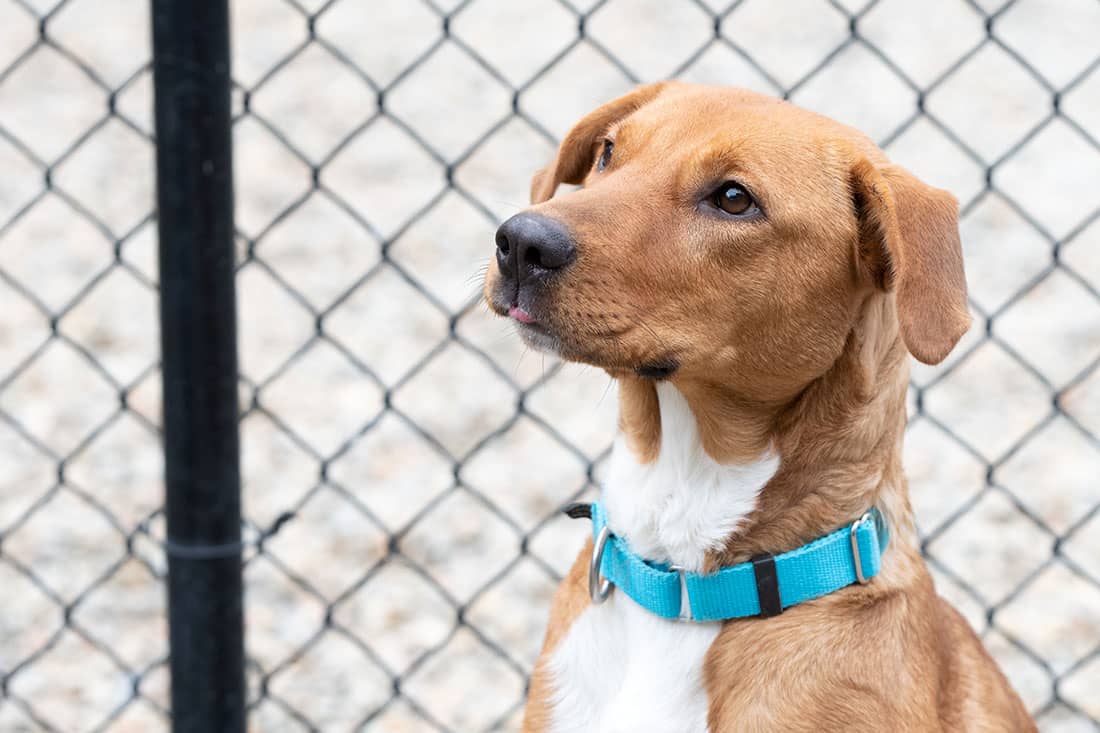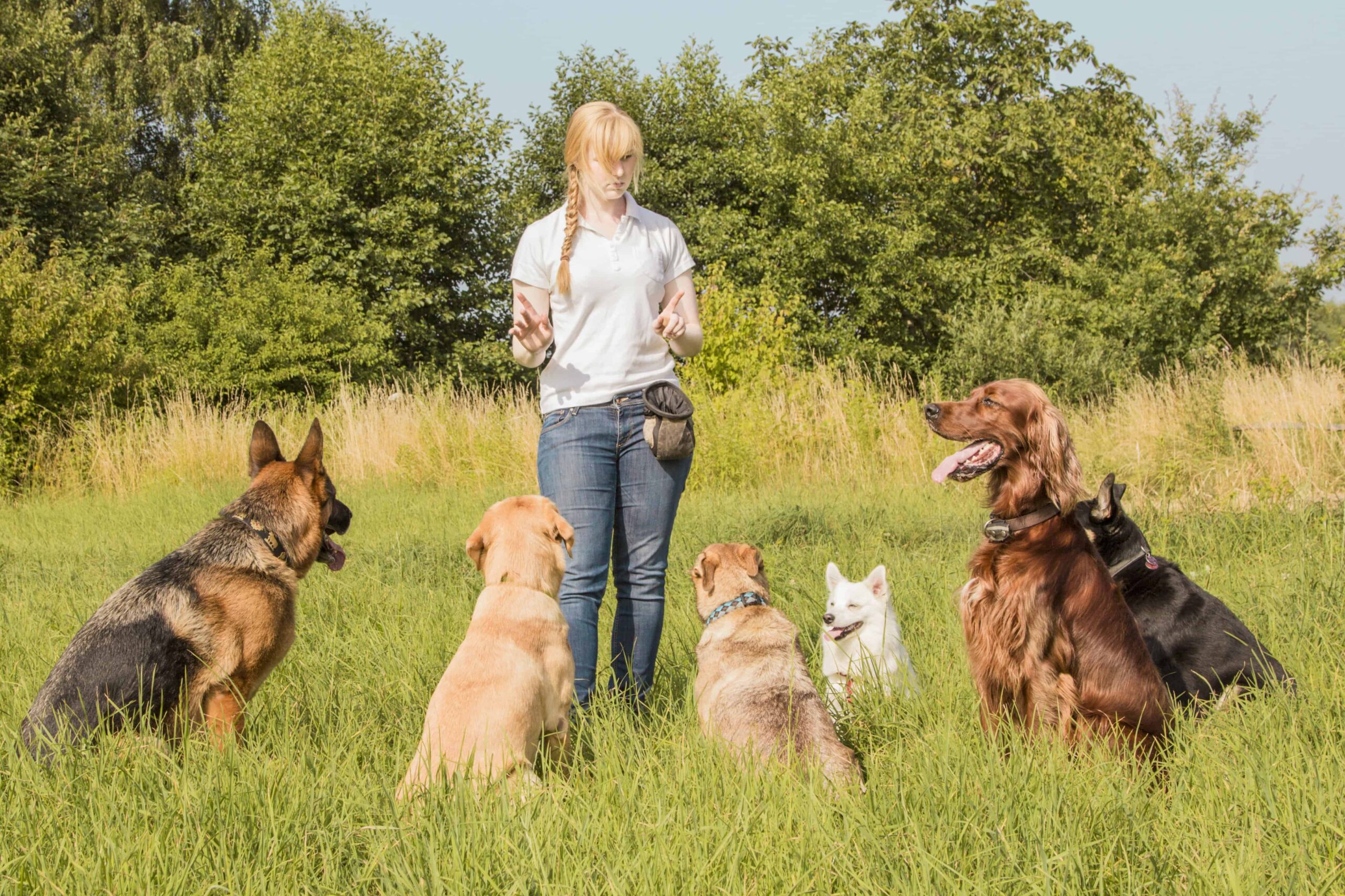How to Pick the Right Method for Effective Dog Training
Wiki Article
Unlock Your Dog's Potential With Effective Educating Techniques
Efficient training methods can considerably enhance your dog's possibility, changing not only their behavior but additionally the bond you share. Recognizing your pet dog's private needs is paramount, as it permits for tailored approaches that resonate with their personality.Recognizing Your Dog's Needs
To effectively educate your canine, understanding its demands is vital. Each pet is special, possessing distinctive personality type, personalities, and backgrounds that influence its behavior and learning capability. Identifying these private differences is crucial for tailoring training approaches to ensure success.First, analyze your canine's power, breed, and age degree - dog training. Puppies, for example, require much shorter training sessions due to their limited interest periods, while high-energy breeds might need much more strenuous activities to remain involved. In addition, understanding your pet's socializing needs is vital; some pet dogs flourish in group setups, while others might like one-on-one interactions
Moreover, be conscious of your pet's mood. Anxiousness, stress, or worry can impede knowing, requiring an environment where your pet dog really feels safe and secure. Developing a routine can also provide structure, which is useful for lots of pet dogs.
Last but not least, focus on your pet's physical health, as pain or discomfort can significantly affect behavior and learning abilities. By adequately recognizing your pet dog's requirements, you lay the structure for efficient training, promoting a positive relationship and enhancing general wellness.
Positive Reinforcement Approaches
Favorable support techniques are among the most reliable training strategies for dogs, cultivating a favorable discovering atmosphere. This method involves fulfilling wanted habits rather than punishing undesirable ones, which urges pet dogs to repeat those behaviors. Incentives can take different forms, such as deals with, praise, playthings, or even playtime, permitting for personalization based on what encourages each private dog.
In addition, positive support can boost the bond between the pet dog and proprietor, as it promotes depend on and encourages open interaction. Proprietors can slowly eliminate treats as the habits becomes deep-rooted, transitioning to spoken appreciation or affection as the main incentives.
Consistency in Training
A constant training strategy is important for reliable dog training, as it establishes clear assumptions and aids dogs comprehend what actions are encouraged. Consistency includes making use of the very same commands, signs, and awards throughout different training sessions, which reinforces and cultivates a solid understanding understanding. When commands are provided inconsistently, pets may become baffled, causing irritation for both the owner and the family pet.It is important to guarantee that all household participants or people engaging with the pet make use of the same terminology and training methods. This uniformity avoids blended signals that can hinder a canine's ability to learn. Additionally, strengthening preferred habits promptly and constantly with favorable benefits, such as treats or praise, solidifies the link in between the activity and the result.
Training sessions need to additionally be normal and structured, permitting for steady progression in complexity. This repetition not just reinforces the pet dog's memory but also constructs their self-confidence. Consistency in training creates a dependable framework that dogs can thrive within, inevitably causing a well-behaved and well-adjusted pet dog. By dedicating to a consistent approach, proprietors can unlock their dog's complete potential and boost the bond in between them.
Socializing Methods
While numerous canine proprietors focus primarily on obedience training, socializing techniques are similarly vital for a pet dog's overall advancement. Socialization involves revealing canines to a selection of environments, individuals, and other animals in a regulated way, allowing them to end up being comfy and confident in diverse circumstances.To begin socialization, start early preferably, as puppies are most impressionable helpful hints between 3 to 14 weeks of age. Present your pup to various stimulations, such as numerous noises, structures, and views. Slowly enhance the intricacy of these interactions by visiting parks, pet shops, or taking part in young puppy courses, my blog where they can satisfy various other dogs and individuals.
Favorable support is crucial during socialization. Compensate your canine with treats and commend when they display positive and calm habits in new scenarios. This helps them associate unique experiences with positive end results, decreasing the chance of concern or aggression later.
Additionally, uniformity is important; routinely revealing your canine to new experiences throughout their life can assist preserve their social abilities - dog training. By utilizing effective socializing strategies, you will cultivate a friendly and well-adjusted pet, with the ability of browsing the world easily
Advanced Training Approaches
Exactly how can pet dog proprietors boost their training strategy beyond basic commands? Advanced training techniques include methods that promote a canine's cognitive capabilities while promoting a much deeper bond in between the proprietor and pet dog.An additional approach is making use of interruptions during training sessions. By gradually introducing different stimulations-- such as other dogs, individuals, or sound-- proprietors can educate their pet dogs to keep emphasis and self-control in real-world situations. Furthermore, integrating sophisticated obedience exercises, like carrying out or recovering objects agility jobs, can additionally challenge a canine mentally and physically.
Moreover, executing scent work urges pets to utilize their natural reactions, involving their sense of smell while advertising analytical skills. Socializing within controlled atmospheres can assist pets learn to navigate communications with different breeds and settings, promoting self-confidence and adaptability. By using these advanced training methods, canine owners can open their canines' potential, causing a obedient and well-shaped companion.
Verdict
Effective training strategies are vital for opening a canine's possible and fostering an unified relationship between pet and owner. By comprehending specific demands, utilizing favorable reinforcement, preserving uniformity, and motivating early socializing, pets can flourish in different settings. Advanced techniques, such as remote control training and aroma job, our website further improve a pet's mental engagement and behavior technique. Jointly, these methods contribute to the advancement of a well-adjusted, satisfied companion, ultimately enhancing the total experience of canine ownership.Furthermore, comprehending your pet dog's socializing requires is vital; some canines prosper in group settings, while others may choose one-on-one interactions.

A regular training technique is critical for reliable pet dog training, as it establishes clear expectations and helps dogs recognize what behaviors are urged. By utilizing these innovative training methods, pet dog owners can unlock their pets' capacity, leading to a all-round and obedient buddy.
Efficient training techniques are important for opening a pet dog's prospective and fostering an unified connection between pet and owner.
Report this wiki page